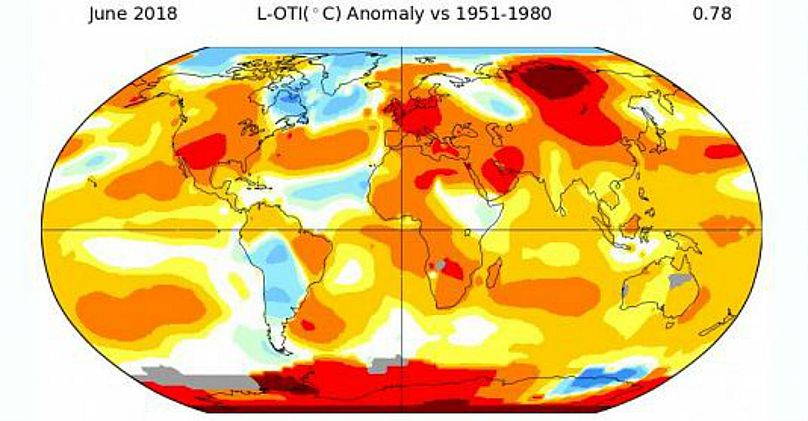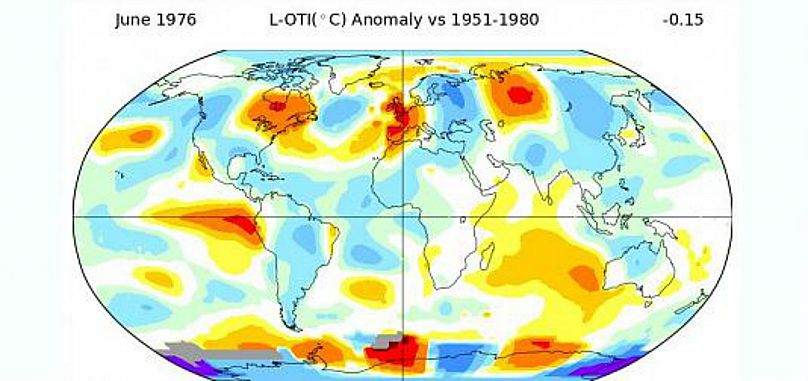There is a high possibility that the next four years will see scorching temperatures across the globe, researchers have warned.
There is a high possibility that the next four years will see scorching temperatures across the globe, researchers have warned.
From 2018 to 2022, it is probable that both average ground and sea surface temperatures will remain abnormally high, according to a new scientific journal.
"We tried to predict how the climate will evolve on its own," lead author Florian Sévellec from the National Center for Scientific Research, France, told Euronews.
"We showed that this natural variability (of the climate) is set to be in a 'warm phase' for the next four years."
This year was a "typical example" of a warm year, said Sevellec — the researchers consider a warm year one that, on average across the seasons, has a higher temperature than previous years. The sweltering hot summer of 2018 has already put it into this bracket.
Sevellec and his team's main findings show that not only is the sweltering air temperature set to remain high until 2022, but there is also a low chance of "intense cold events".
"A cold phase is still not impossible, but it is unlikely," he added.
The team conducted the research before the summer heat wave that scorched Europe, among other parts of the world, and predicted a "high probability of having a warm anomaly" in 2018.
By studying pre-existing simulations from previous centuries and looking for similarities to current climate change conditions, the team could draw conclusions from results with "good reliability".
In future research, Sevellec hopes to pinpoint the climate phenomena he is studying on a regional scale, as the journal's current predictions consider global trends.
Scientists previously warned that the record-breaking heatwave that impacted Europe in summer 2018 was likely to become the rule rather than the exception as climate change disrupts weather patterns.













